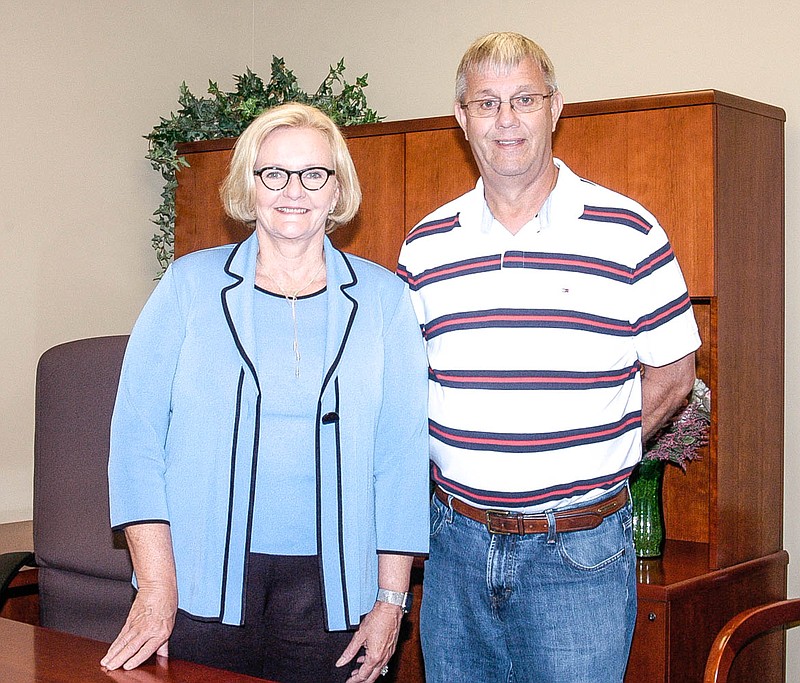Health care availability and highway funding dominated the questioning of U.S. Sen. Claire McCaskill at a public town hall meeting Wednesday in California.
The California event was one of 10 town hall meetings she conducted in Mid-Missouri last week. At the California gathering, she spoke on a variety of topics including attempts to reduce the cost of prescription medication; work to encourage hiring military veterans for the border patrol; and reports of increased incidents of sexual assaults in the military.
But she also accepted questions from those attending; one of the topics raised by area residents was availability of health care and who would pay the bills.
McCaskill said it is beneficial for people to have multiple places they can go to to obtain health care. "Diversity is best," she said. "I'm not sure health care is best by the government."
To illustrate her point, she gave a hypothetical example of a 27-year-old motorcycle rider, without health insurance, who received severe injuries in an accident, and was taken by a helicopter to a hospital. After treatment, the motorcycle rider receives rehabilitation and then is sent to a care facility. In her example, the person is permanently disabled and bankrupt.
"Who pays for that?" she asked, as she explained that the hospital discovers it is facing a lot of bills from uninsured patients. As a result, the hospital informs the insurance companies that it will have to charge more for the patients who are insured to make up for the patients who are not insured and whose bills aren't going to be paid.
The current discussion over the health insurance in Congress, she said, is an attempt to deal with this problem by bringing in additional money to pay these costs.
"The question is how to get more people into the system," McCaskill said. "How you deal with this is complicated and hard." She said this leads to a requirement that all have health insurance. She said she hopes the current bill of repeal and replace the Affordable Care Act fails, and then the members of Congress will be able to get together and fix the current system.
Another written question asked if the Federal Highway Trust Fund could be "killed" and if the money that is sent now to Washington could be kept in Missouri.
The question was submitted by Wayne Muri, former chief engineer of the Missouri Department of Transportation (MoDOT). He said there is no reason to have a Federal Highway Trust Fund with the work on highway infrastructure that is needed because less than half of the money goes to highway work. His figures were that roughly $850 million goes to the federal fund, with only about $350 million returning to the state for highway work.
McCaskill agreed that a lot of the funds do go to non-highway work, but she said that some of it is needed. Some of those funds, she said, help programs like mass transportation bus systems in large cities, where some of those people have no other transportation options.
She acknowledged that Missouri has more roads and bridges than many other states and has one of the lowest gas tax rates. The amount of money collected by the gas tax has decreased also because vehicles get much higher fuel mileage, she said.
McCaskill said Gov. Eric Greitens has formed a task force to look into the infrastructure problem and state Sen. Mike Kehoe has been working on the issue as well.

